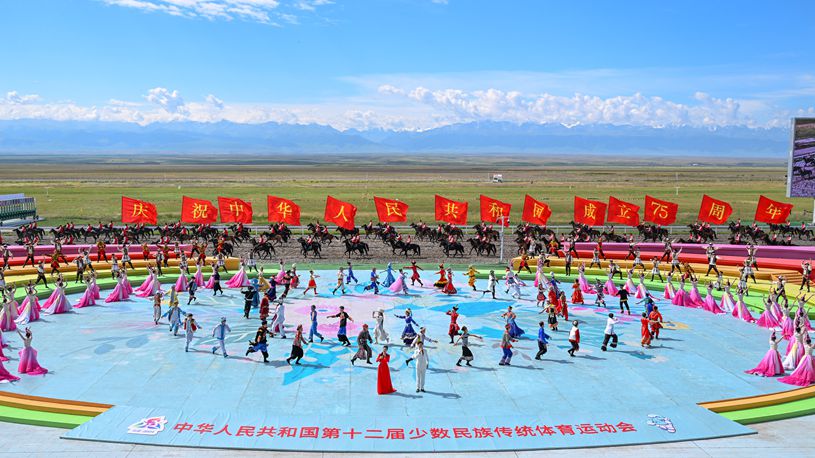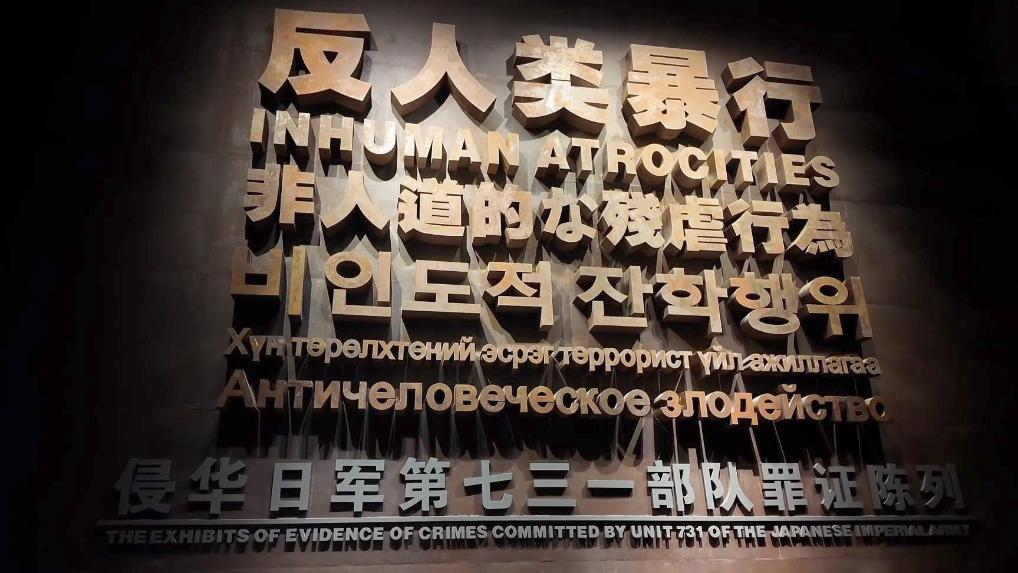* Scientific and technological innovation is the core of the new quality productive forces, according to speakers in the latest episode of the China Economic Roundtable.
* Institutional reforms in the field of science and technology essentially involve forming new relations of production that are in line with the new quality productive forces, and ought to facilitate the smooth flow of high-quality factors toward high-quality productive forces.
* China's development of new quality productive forces will generate opportunities for tapping into its expanding market, and global investors can work with China in pushing for the explosion of the new technological revolution and participate in the latest wave of globalization.
BEIJING, June 24 (Xinhua) -- In China's pursuit of high-quality development, the term "new quality productive forces" is grabbing the spotlight, highlighting the direction for the transformation and upgrading of the world's second-largest economy.
What are the core elements of "new quality productive forces"? How should they be developed, and what are the implications for the rest of the world? In the sixth episode of the China Economic Roundtable, an all-media talk platform hosted by Xinhua News Agency, government officials and industry insiders shared their insights on some of the most frequently asked questions about the buzzphrase.
INNOVATION AT CORE
First introduced in 2023, new quality productive forces refer to advanced productivity freed from the traditional economic growth mode and productivity development paths. It features high-tech, high efficiency and high quality, and comes in line with the new development philosophy.
The new strategy comes amid China's push for high-quality development and the surging tide of new scientific revolution and industrial transformation, according to Liu Dongmei, Party chief of the Chinese Academy of Science and Technology for Development.
"Scientific and technological innovation is the core of the new quality productive forces," she said, noting that through sci-tech innovation, especially in breakthrough and disruptive technologies, new growth impetus can be provided for economic development.
China's overall strength in science and technology innovation has steadily improved in recent years, with the country's research and development (R&D) expenditure exceeding 3.3 trillion yuan (about 463.5 billion U.S. dollars) in 2023, an increase of 8.1 percent year on year.
Huang Hanquan, head of the Chinese Academy of Macroeconomic Research affiliated to the National Development and Reform Commission, said the development of the new quality productive forces covers both emerging industries and traditional industries, and that innovation involves technologies as well as institutions and management.
"Sci-tech and institutional innovations are like two wheels propelling the growth of China's total factor productivity," Huang said at the roundtable.
Qianhai in China's southern tech hub Shenzhen, a modern service industry demonstration zone, has set an example in developing new quality productive forces through technological and institutional innovations.
Wang Jinxia, deputy director of the Qianhai Authority, said local authorities focused on fostering an industrial cluster for artificial intelligence, intellectual property protection, strengthening financing support and building large platforms for industrial development.
Today, there are around 55,000 tech firms in Qianhai, of which 2,239 are national high-tech enterprises, and 14 are unicorn companies or startups valued at more than 1 billion U.S. dollars, according to Wang.
GUIDING FUTURE REFORMS
The new strategy has charted a clear path for high-quality development and relevant reforms as China strives to eliminate the bottlenecks that strain the development of new quality productive forces, according to the panelists.
Institutional reforms in the field of science and technology essentially involve forming new relations of production that are in line with the new quality productive forces, Liu said.
Liu added that one crucial aspect of these reforms lies in interdepartmental coordination in terms of formulating strategy, allocating resources, and distributing major facilities to maximize the efficiency of resource utilization.
Echoing Liu's views, Huang said institutional reforms ought to be multifaceted and comprehensive, thereby facilitating the smooth flow of high-quality factors like capital, data and talent toward high-quality productive forces.
Huang also underscored the need to reform the sci-tech system to encourage inputs into basic research for more original and disruptive achievements, and to reform services to expedite the application of technological advancements, transforming them into tangible productivity.
In particular, both Huang and Liu highlighted the role of talent management in driving technological innovation.
Efforts need to be made to create a more enabling environment for innovation to attract more talents to work and live in China, reform the education system to nurture more future scientists, craftsmen and engineers, and improve evaluation systems to encourage long-term basic research, Liu said.
GLOBAL BENEFITS
China's ongoing efforts to foster new quality productive forces will inject fresh momentum into global economic growth and provide massive opportunities for investors, according to the panelists and other industry insiders present at the roundtable.
"Alongside Chinese companies, global investors are seizing a new round of opportunities arising from the development of new quality productive forces," said Wang with Qianhai Authority.
China's development of new quality productive forces would generate opportunities for tapping into the country's expanding market, according to Wang.
Global investors will also be able to work with China in pushing for the explosion of the new technological revolution, and participate in the latest wave of globalization, he said, adding that foreign companies have already invested over 40 billion U.S. dollars in Qianhai.
The development of China's new quality productive forces may have significant impacts on the global economy, influencing innovation and competitiveness across various sectors and industries, said Ronnie Lins, director of the China-Brazil Center for Research and Business.
Driven by China's unwavering focus on innovation, foreign direct investment in the country's hi-tech manufacturing sectors reached 37.76 billion yuan (about 5.3 billion U.S. dollars) during the first quarter of this year, official data showed.
As China continues to cultivate new quality productive forces, the country is also sharing its intelligent, eco-friendly and inclusive technologies with other countries, said Liu with the Chinese Academy of Science and Technology for Development.
The world is grappling with several pressing global challenges, encompassing food security, natural disasters and climate change. With its rich experience, China has much to offer in addressing these issues, she said.
"I am very optimistic that this new, high quality, high-tech, productive forces would be a huge step forward for humans, can make much better and lower-cost products. And we can do it in a much more environment-friendly way," said Erik Solheim, co-chair of the Europe-Asia Center and former under-secretary-general of the United Nations.
(Video reporters: Yin Xiaosheng, Jasmin Brutus, Yu Fuqing, Yang Yiran, Yao Bing, Ahmed Shafiq, Adel Ahmed, Hua Hongli, Nurdin Pallangyo, Xie Zhao; Video editors: Zheng Xin, Hui Peipei, Roger Lott, Liu Ruoshi) ■












